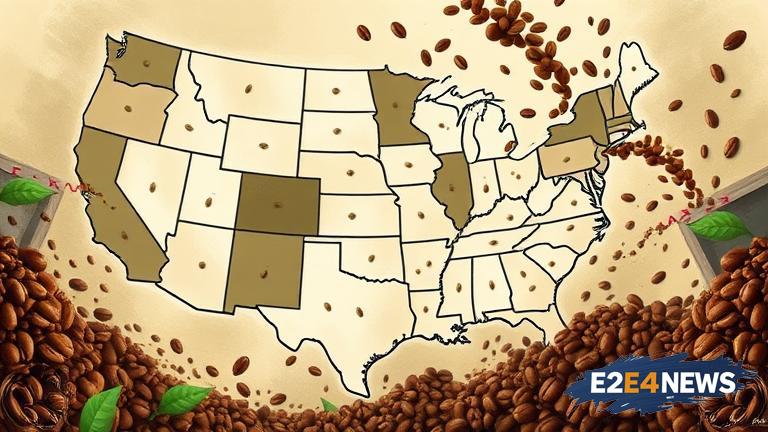The US coffee market is bracing for a significant impact as President Trump’s administration imposes a 50% tariff on Brazilian coffee beans. The move is expected to lead to a substantial increase in coffee prices, affecting not only coffee lovers but also the entire supply chain. Brazil is the world’s largest coffee producer, accounting for approximately 30-40% of the world’s total coffee production. The US is one of the largest consumers of Brazilian coffee, with a significant portion of its coffee imports coming from the South American country. The tariff is expected to have far-reaching consequences, including higher production costs, reduced profit margins, and potential job losses. Coffee roasters and distributors are already feeling the pinch, with many expressing concerns over the sustainability of their businesses. The National Coffee Association has warned that the tariff could lead to a shortage of high-quality coffee beans, forcing companies to seek alternative suppliers. However, this may not be a viable option, as other coffee-producing countries may not be able to meet the demand. The US coffee market is highly competitive, with many players relying on Brazilian coffee beans to maintain their market share. The tariff is expected to disrupt this delicate balance, potentially leading to a shift in market dynamics. Small and medium-sized coffee roasters are likely to be the hardest hit, as they may not have the resources to absorb the increased costs. Larger companies may also feel the impact, as they struggle to maintain their profit margins. The US government has argued that the tariff is necessary to protect American farmers and industries from unfair trade practices. However, the coffee industry has countered that the move will only serve to harm US businesses and consumers. The Brazilian government has also expressed its disappointment and concern over the tariff, warning that it could lead to retaliatory measures. As the situation continues to unfold, coffee lovers are bracing themselves for a potential price hike. The US coffee market is expected to experience a period of volatility, with prices potentially increasing by as much as 20-30%. The long-term effects of the tariff remain to be seen, but one thing is certain – the US coffee market will never be the same. The tariff has sparked a heated debate over the impact of trade policies on the coffee industry, with many calling for a more nuanced approach. The US government has been accused of taking a blunt instrument approach, without considering the potential consequences for the coffee industry. As the coffee industry struggles to come to terms with the new reality, one thing is clear – the US coffee market is in for a wild ride. The tariff has sent shockwaves through the industry, with many companies scrambling to adjust to the new landscape. The US coffee market is expected to experience a period of significant change, as companies adapt to the new reality. The long-term effects of the tariff will depend on a variety of factors, including the response of the Brazilian government and the ability of US companies to adapt to the new landscape.





